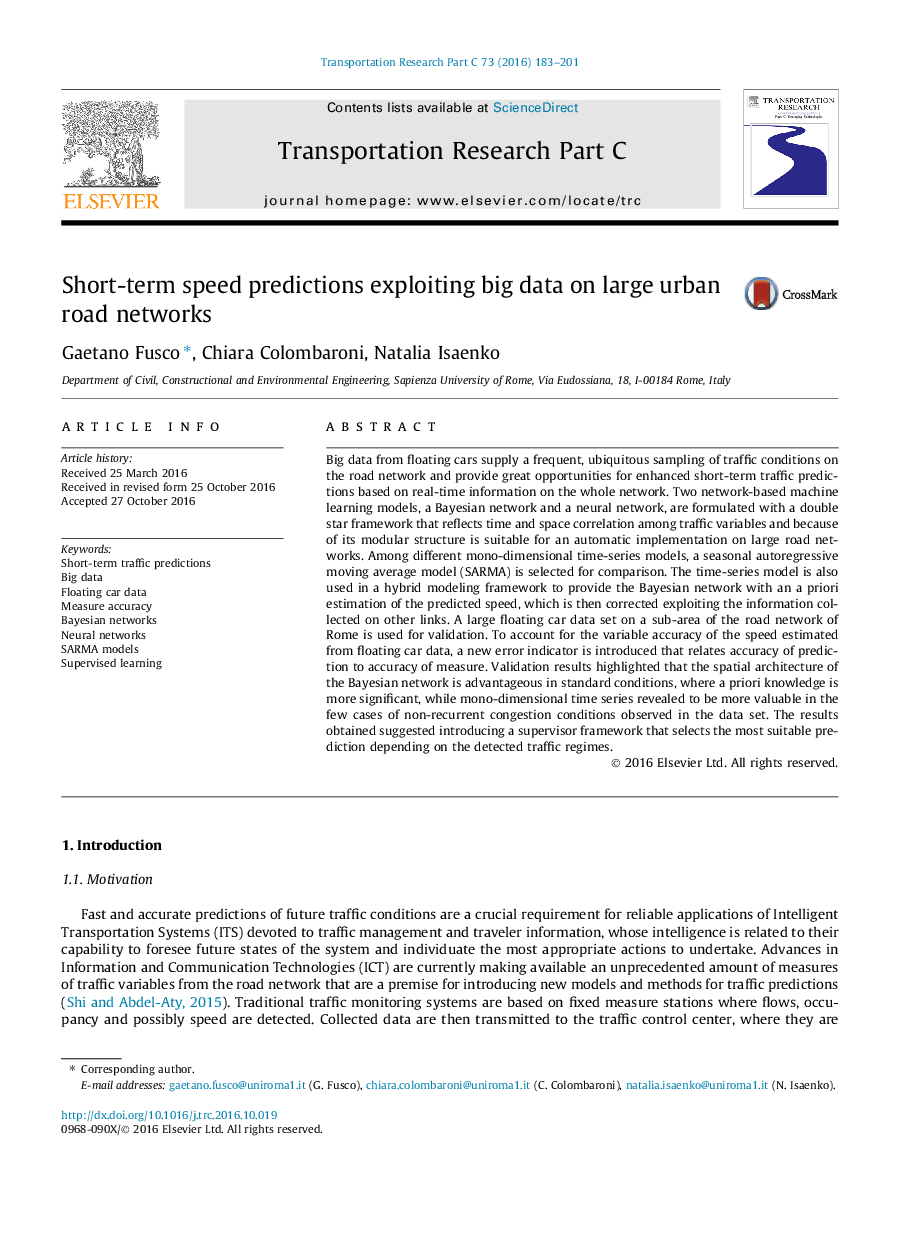| کد مقاله | کد نشریه | سال انتشار | مقاله انگلیسی | نسخه تمام متن |
|---|---|---|---|---|
| 4968610 | 1449675 | 2016 | 19 صفحه PDF | دانلود رایگان |
عنوان انگلیسی مقاله ISI
Short-term speed predictions exploiting big data on large urban road networks
ترجمه فارسی عنوان
پیش بینی های سرعت کوتاه مدت با استفاده از داده های بزرگ در شبکه های بزرگ جاده ای شهری
دانلود مقاله + سفارش ترجمه
دانلود مقاله ISI انگلیسی
رایگان برای ایرانیان
کلمات کلیدی
موضوعات مرتبط
مهندسی و علوم پایه
مهندسی کامپیوتر
نرم افزارهای علوم کامپیوتر
چکیده انگلیسی
Big data from floating cars supply a frequent, ubiquitous sampling of traffic conditions on the road network and provide great opportunities for enhanced short-term traffic predictions based on real-time information on the whole network. Two network-based machine learning models, a Bayesian network and a neural network, are formulated with a double star framework that reflects time and space correlation among traffic variables and because of its modular structure is suitable for an automatic implementation on large road networks. Among different mono-dimensional time-series models, a seasonal autoregressive moving average model (SARMA) is selected for comparison. The time-series model is also used in a hybrid modeling framework to provide the Bayesian network with an a priori estimation of the predicted speed, which is then corrected exploiting the information collected on other links. A large floating car data set on a sub-area of the road network of Rome is used for validation. To account for the variable accuracy of the speed estimated from floating car data, a new error indicator is introduced that relates accuracy of prediction to accuracy of measure. Validation results highlighted that the spatial architecture of the Bayesian network is advantageous in standard conditions, where a priori knowledge is more significant, while mono-dimensional time series revealed to be more valuable in the few cases of non-recurrent congestion conditions observed in the data set. The results obtained suggested introducing a supervisor framework that selects the most suitable prediction depending on the detected traffic regimes.
ناشر
Database: Elsevier - ScienceDirect (ساینس دایرکت)
Journal: Transportation Research Part C: Emerging Technologies - Volume 73, December 2016, Pages 183-201
Journal: Transportation Research Part C: Emerging Technologies - Volume 73, December 2016, Pages 183-201
نویسندگان
Gaetano Fusco, Chiara Colombaroni, Natalia Isaenko,
